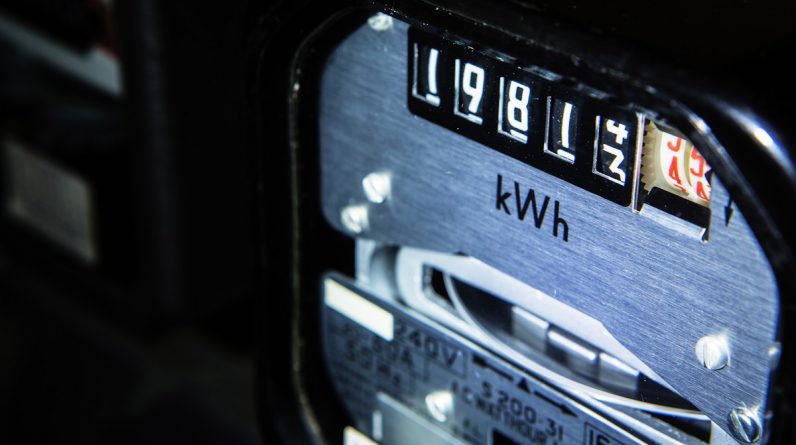
The manufacturing sector stands at a crossroads, facing growing energy demands and increasing environmental pressures. As reported by the U.S. Energy Information Administration (EIA), a staggering 60 percent of generated energy is wasted, highlighting a critical inefficiency that needs addressing. With energy consumption in the U.S. predicted to rise by 2.5 in 2024 alone, manufacturers should seek innovative solutions to curb waste and use this wide optimization margin to lower their energy bills and greenhouse gas emissions.
The advent of AI offers a huge opportunity to address our energy challenges. AI-powered solutions are powerful tools that can enhance energy efficiency and drive sustainability in manufacturing. Here’s how AI can make a significant impact:
Enhancing Operational Efficiency
AI technologies can transform how manufacturers manage energy consumption across their operations. By deploying AI-driven systems to monitor and optimize energy-intensive processes, such as HVAC systems, water treatment, and industrial heating, manufacturers can achieve significant energy savings. These AI systems utilize real-time data and advanced algorithms to provide actionable insights, enabling precise adjustments that reduce energy waste and minimize carbon emissions.
For example, predictive maintenance recommendations powered by AI can identify potential equipment failures before they occur, ensuring machines operate at peak efficiency with a prolonged lifespan. This proactive approach not only saves energy, but reduces operational downtime and maintenance costs. AI can also be used to optimize production schedules, ensuring that machines and systems run only when needed, further reducing energy consumption.
Balancing Energy Demand and Supply
AI excels in analyzing vast amounts of data to forecast energy demand with high accuracy. By examining historical usage patterns, market trends, and external factors such as weather conditions, AI systems can predict demand fluctuations and optimize energy procurement strategies. This capability allows manufacturers to balance energy supply and demand more effectively, and can even aid in integrating renewable energy sources, helping us reduce reliance on fossil fuels.
Optimizing the energy mix of renewables and fossil fuels is crucial for manufacturers looking to reduce their environmental impact. AI-backed solutions can recommend the most efficient use of energy sources, helping companies achieve their net-zero goals while minimizing costs. AI can also assist in demand response programs where energy usage is adjusted based on grid conditions, thereby preventing overloading and ensuring a stable energy supply.
Facilitating the Transition to Renewable Energy
The shift to renewable energy is essential for long-term sustainability, but it comes with challenges, including infrastructure constraints and regulatory hurdles. AI solutions can streamline this transition by providing insights into grid management, renewable energy integration and energy storage solutions. By analyzing grid topology and identifying optimal points for renewable energy integration, AI helps manufacturers navigate the complexities of adopting clean energy technologies.
Furthermore, AI-powered analytics can enhance the management of renewable energy systems, ensuring efficient energy distribution and storage. This optimizes the use of solar, wind, and other renewable sources, making them more viable and cost-effective for industrial applications. AI can also support the development of microgrids, which allow for localized energy generation and consumption, further enhancing energy resilience and sustainability.
Driving Sustainability and Profitability with AI
To fully realize the benefits of tapping into AI’s capabilities in energy management, a holistic approach is needed, encompassing the entire production process and supply chain. But the reward is worth it – by integrating AI into multiple aspects of energy management, from monitoring and optimization to strategic planning and decision-making, manufacturers can reduce costs and energy consumption – a win-win.
Obviously, when engaging in any complex projects, it is important to evaluate the benefits and the return on investment which will depend on the process, the energy intensity of its different steps, the operating conditions, the degree of automation, the load of the most energy-consuming machines, the energy used (and, in some cases, produced), and the energy prices and their variations.
One of the key benefits of AI is its ability to provide a comprehensive view of energy usage across an organization. By collecting and analyzing data from various sources, AI can identify inefficiencies and recommend targeted improvements. This enables manufacturers to implement energy-saving measures that are tailored to their specific needs and circumstances.
Embracing AI at scale also allows manufacturers to align their sustainability objectives with business profitability. AI-driven energy efficiency measures enhance resilience and competitiveness in the market. As the manufacturing industry moves towards an all-electric, sustainable future, AI will play an important role in driving this transformation.
By leveraging AI’s capabilities, manufacturers can tackle energy waste, reduce emissions, and pave the way for a sustainable, efficient, and profitable future. This requires a commitment to continuous improvement and innovation, as well as a willingness to embrace new technologies and approaches.
It’s nothing new for manufacturing to collaborate with stakeholders across the value chain, including suppliers, customers, and regulators. This time, with AI-enabled insights, they can become real Impact Makers, and ensure their sustainability efforts are aligned, supported, and spread across the value chain. Transition to clean energy sources not only helps protect the environment but also drives business profitability. As we move towards a more sustainable future, AI will be an indispensable tool in bringing efficiency to the next level.








